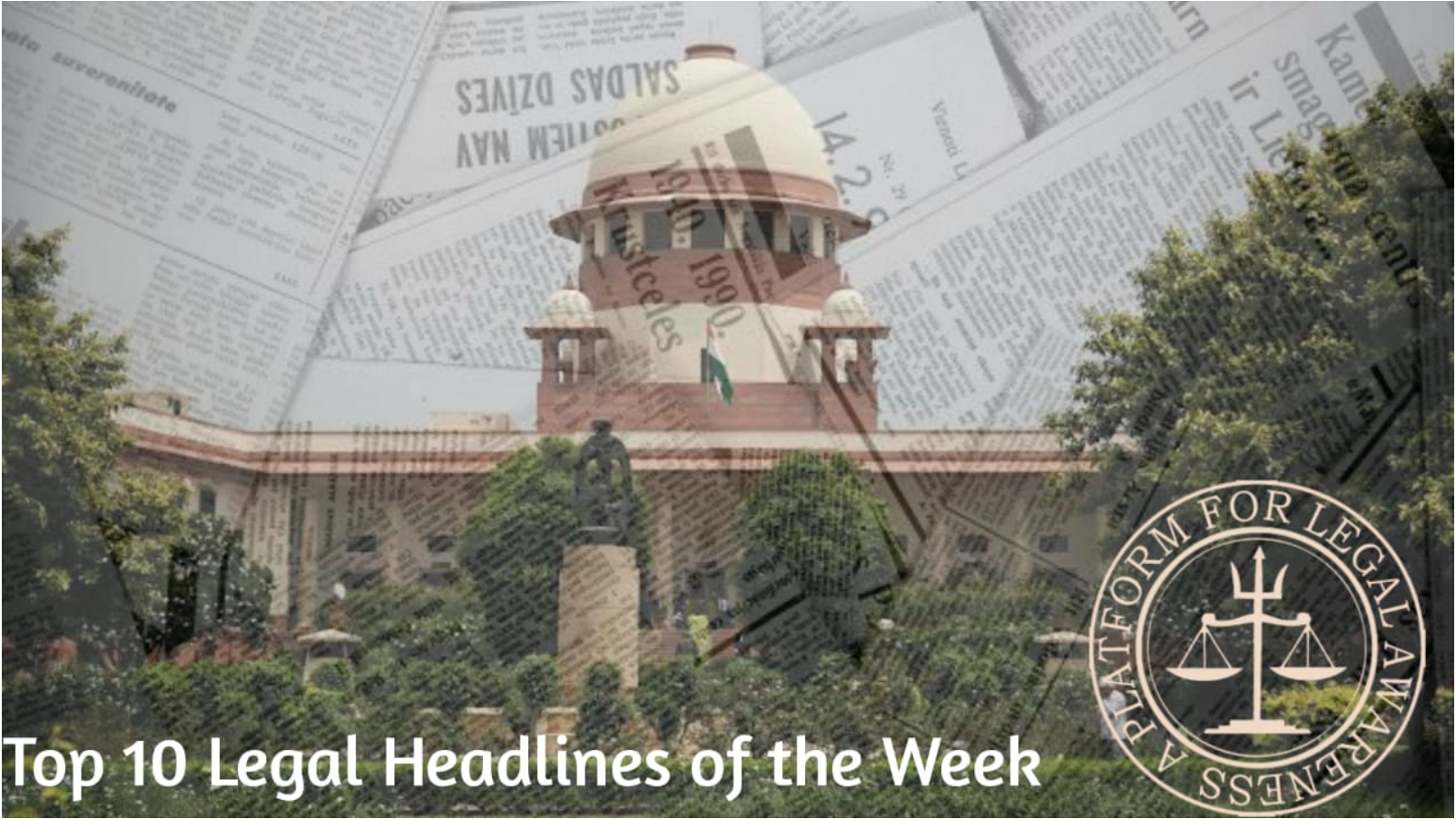1. Supreme Court Directs Minimum 1/3rd Women's Reservation in Supreme Court Bar Association Posts From 2024 Elections
In a recent ruling on the Supreme Court Bar Association (SCBA) elections, the division bench of Surya Kant and KV Viswanathan, JJ. Mandated that a minimum of 1/3rd of seats in the Executive Committee and Senior Executive Members be reserved for women members of the Bar. Additionally, one post of Office Bearer must be exclusively reserved for a female candidate on a rotational basis. This decision reflects the Court's view that timely reforms are essential for institutions like SCBA to adapt to evolving challenges while ensuring inclusivity and representation.
2. Due to the Elections, The Supreme Court tells ED that we may consider the Question of Interim Bail for Arvind Kejriwal.
Kejriwal petitioned the Supreme Court after the Delhi High Court dismissed his writ petition against the ED arrest on April 9. The SC issued a notice on April 15, and the next hearing was initially set for May 6. However, Singhvi raised concerns on April 26 before Justice Khanna's bench, highlighting that Kejriwal was not an accused until March 16 as per ED summons. Singhvi argued that there were no new materials from 2023 with the ED. The SC, considering the case's importance during the Lok Sabha Elections, discussed the possibility of interim bail if the hearing faced delays. The next hearing is scheduled for May 7.
3.'Unnatural intercourse by a husband with wife, not rape, women's consent immaterial': MP High Court
In India, 'Marital rape' remains unrecognised as an offence. Recently, a court quashed an FIR against a husband accused of unnatural sex by his wife, citing that such acts between spouses are not covered under Section 377 of the IPC. The court noted that exceptions exist only in cases of judicial separation under Section 376-B, and sexual intercourse with a wife not under 15 years old is not considered rape under Section 375.
4. Victim Shaming Approach of Courts Will Deter Women from Reporting Sexual Offences: Amicus Curiae Tells Supreme Court
The Supreme Court reacted to remarks by the Calcutta High Court regarding adolescent sexual conduct, criticising victim-shaming and stereotyping. It overturned the High Court's cautionary statement and emphasised individual rights, appointing Senior Advocate Madhavi Divan as amicus curiae.
5. S.138 NI Act | Supreme Court Sets Aside HC Decision Allowing Amendment of Cheque Date Mentioned in Complaint
In a recent case regarding cheque dishonour under the Negotiable Instruments Act of 1881, the Supreme Court overturned a High Court judgment permitting an amendment to change the cheque date in the complaint. The complainant wanted to change the cheque date from 22.07.2010 to 22.07.2012 after the evidence stage. Even though the High Court allowed it due to typographical errors, the Supreme Court disagreed, stressing the need for consistency in legal documents. The original notice also mentioned the initial date, leading to the amendment being rejected.
6. Bhima Koregaon Case | Trial May Not Be Over for Another 10 Years, Says Supreme Court While Hearing NIA Challenge to Navlakha's Bail
The Supreme Court, on April 30, remarked during the hearing on Bhima Koregaon-accused Gautam Navlakha's case that the trial might extend for another ten years. Navlakha, held since August 2018 under the Unlawful Activities (Prevention) Act, faces charges related to the 2018 Bhima Koregaon violence and alleged ties with proscribed groups. During the hearing with Justices MM Sundresh and SVN Bhatti, Navlakha's bail and house arrest were discussed. The NIA sought surveillance cost reimbursement, which was objected to by Navlakha's lawyer. The Court adjourned due to NIA counsel's unavailability, noting concerns about the bail order's stay without proper hearings.
7. If You Want, You Move Like Lightning’: Supreme Court on Uttarakhand's Action Against Patanjali, Says Inaction for Years Needs Explanation
The Uttarakhand State Licensing Authority faced criticism for its delayed response to misleading medical ads by Patanjali Ayurved and Divya Pharmacy. The Supreme Court expressed dissatisfaction, pointing out the Authority's inactivity until the Court intervened. The State has taken steps, including suspending licenses and filing a criminal complaint. Justice Amanullah questioned the four-year delay and non-compliance with Court orders.
8. If AAP Is The Main Accused, Can Kejriwal Be Prosecuted Without Adjudication Proceedings Against AAP? Supreme Court Asks ED
During a recent Supreme Court hearing, questions about the ED's ability to prosecute Arvind Kejriwal without ongoing adjudication against AAP were raised. The ASG argued that AAP's adjudication wasn't mandatory for Kejriwal's prosecution under PMLA. Justice Khanna noted ED's application of Section 70 PMLA, treating AAP as the prime accused and Kejriwal vicariously liable. The ASG cited Section 5(1) PMLA to argue attachment isn't mandatory before criminal prosecution, referring to confiscation proceedings under Section 8 for crime proceeds. Justice Khanna also referenced a previous case where ED officers weren't deemed police officers due to their role in adjudication-related investigations.
9. Supreme Court Issues Contempt Notice to Two NCDRC Members for Issuing Warrants Ignoring SC's Stay Order.
The Supreme Court took action against two members of the National Consumer Dispute Redressal Commission (NCDRC) for issuing non-bailable warrants despite an interim order from the Supreme Court. Despite being asked for an explanation, they did not recall the warrants. This inaction led to the court issuing a contempt notice, criticising their failure to withdraw the warrants against developer directors as per the Supreme Court's order.
10. The Supreme Court Issued a Notice To the Centre On a Plea Seeking Welfare Measures For Farmers, such as a Price Stabilisation Fund and Agriculture Cess.
The Supreme Court noticed a PIL by The Sikh Chamber of Commerce about agricultural policies and farmer welfare. They emphasised the need for thorough research and questioned the necessity of a price stabilisation fund alongside minimum support prices (MSP). The case reflects ongoing debates about agricultural policies and challenges for Indian farmers.

